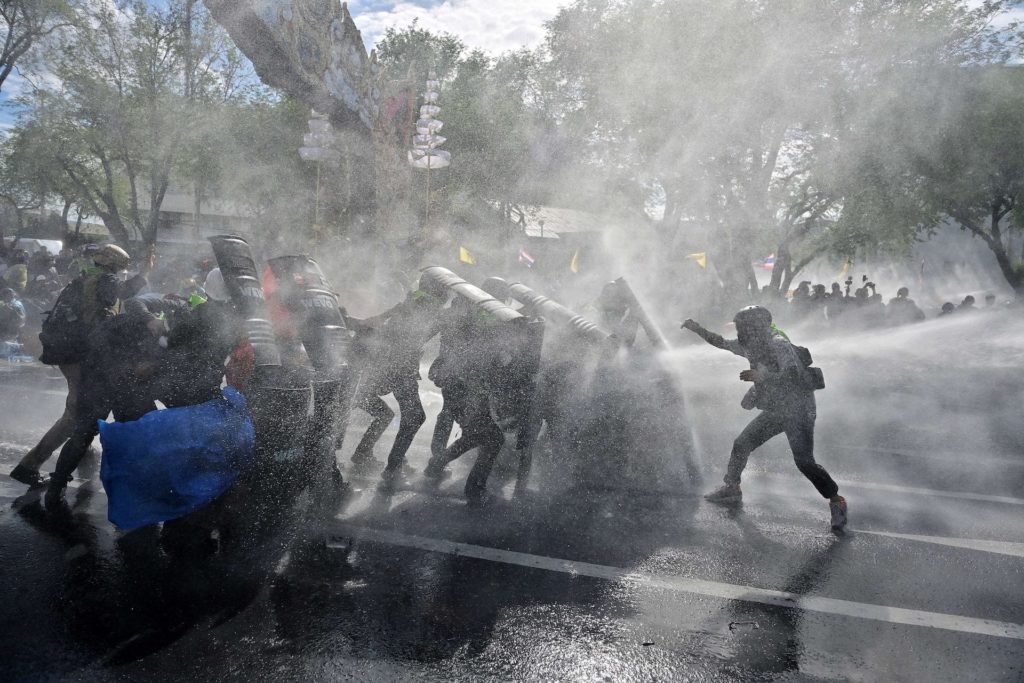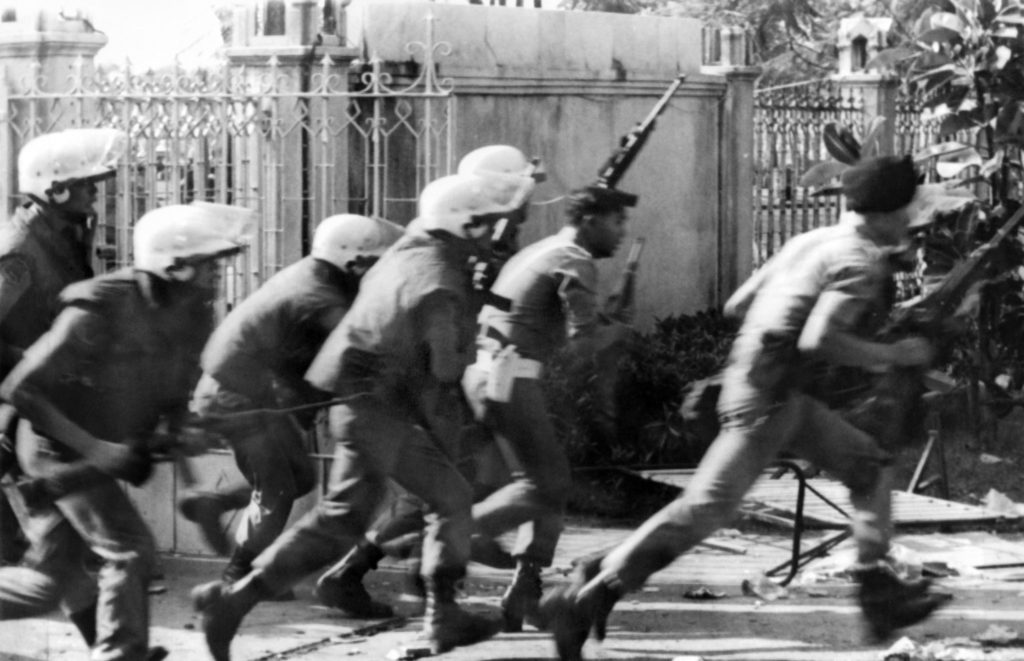
In Nakhon Sawan province, a 24-year old man arrested for selling methamphetamine pills suffocated to death as corrupt Thai police officers attempted to extort a bribe of two million baht for his release. The leaked footage sent chills down the collective spine of Thailand, and ignited—or renewed a debate over both the common practice of police brutality and the need for comprehensive police reform. Police reform is a tired subject because somehow, attempts have failed or not lived up to their billing. Second, police association with corruption, cronyism, and failure are well known and their brutal history extends much deeper than the death of Jeerapong Thanapat. In the 1970s, the Border Patrol police attacked Ba Na Sai village, killing several and burning the village to the ground. The event made national headlines as communist insurgents who were blamed were not living in the village nor was the village under the control of communist influences. Their complicity in the events of October 6, 1976 are well documented.


Police brutality and influence increased dramatically under former Prime Minister and former police lieutenant colonel Thaksin Shinwatra, who empowered the police to dark heights, rivaling at one time, the military in power. The famous “tomato” police were loyal to Thaksin to a fault, brutally enforcing a terrible war on drugs in the Deep South, and later were accused of killing human rights lawyer Somchai Neelapaichit, who represented many Muslims.
Many have sought police reform, the most famous attempt was set up by Pol. Gen Vasit Dejkunjorn, after the 2006 coup. While it recommended the decentralization of the police as well as involving the public as a means of enhancing the reputation of the Thai police, few of his Police Reform Committee’s recommendations found their way into Thailand’s bloated police bureaucracy.
Reform in Thailand, like that of the United States often gets choked up by the tediousness of the legislative process. The murder of George Floyd sparked hopes that meaningful police reform would occur at the local and federal levels. Former President Donald Trump created a database of decertified police officers. Under President Biden, half measures have stalled the George Floyd Justice in Policing Act, which provides de-escalation training, mental health assistance, and bans chokeholds. It has yet to reach the Oval Office. Thailand’s police reforms under the Prayut government are all but lost. While the 2017 Constitution mandates reform, it has yet to transpire. A bill was brought forward in January 2021 where police would be monitored by an ethics and morality board, and police appointments would be based on past performance and seniority. The National Police Act has since stalled and has been modified nine times.

Thailand is a very different place from that of the United States. While police reform might get swallowed up by partisan bickering or the slow pace of the legislative process, U.S. states and municipalities do invest in their institutions, and some—like the city of Oakland, California—have already enacted institutional reforms to take nonviolent 911 calls out of the hands of the police, but to mobile teams of civilians. In other words, it “defunds” the police by shifting resources to other departments or personnel who might be able to better assume those duties. Thailand on the other hand has failed or is incapable of redirecting valuable resources–and more importantly has not properly invested in the institutions that could enable meaningful police reform. Institutional weakness on the part of both the National Human Rights Commission (NHRC) is a prime example.
In 2015 the Global Alliance of National Human Rights Institutions (GANHRI), stripped Thailand’s right to address and present during UN Human Rights Council sessions by downgrading the institution’s status from A to B. The Geneva-based organization was also concerned about the independence of Thailand’s human rights body as well as the methods by which commissioners are appointed. Had Thailand properly invested in the independence and institutional integrity of the NHRC as well as its operating budget, it could assume many of the monitoring and investigative duties that if not conducted properly, could enable police brutality and acts of torture. Similar weaknesses can be found in the National Anti-Corruption Commission (NACC) and the Office of the Ombudsman.
A lack of adherence to international rules and well-established ethical standards also enables police brutality and hinders reform. It is commonplace for Thai police to use non-lethal weapons in pushing back demonstrators. Trucks with large water cannons are a common sight, spraying purple-colored water laced with tear gas. The UN Basic Principles on the Use of Force and Firearms by Law Enforcement Officials dictate that these “non-lethal” weapons “should only be used in situations of serious public disorder where there is a significant likelihood of loss of life, serious injury, or the widespread destruction of property”. Evidence of serious injury can be seen in the case of former PDRC member turned anti-Prayut activist Tanat Thanakitamnuay, who was hit by a projectile that blinded him in his right eye while addressing protesters on August 13.
There is also a difference in philosophy. For generations, Thai police have worked by instilling fear, anxiety and inflicting severe forms of punishment. European countries like the United Kingdom have a much different take on community policing, adopting a philosophy of policing by consent, which dictates that the institution’s reputation, authority, and public legitimacy are maintained only by the approval of the general public. In doing so, the use of force is diminished. There is also a belief that the institution should invest in the officer, providing substantive training before they are sent onto the streets. In Norway for example, it takes considerable time, energy, and resources in order to become a police officer. A Bachelor’s degree is required, where at least one year is spent studying ethics. Little of this philosophy has made its way into the Royal Thai Police. Many police officers lack sufficient training and because of budgetary constraints, work under difficult and stressful conditions.
The torture and brutal murder of Jeerapong Thanapat has once again awakened public anger over what is seen as routine practice by the police in Thailand. While the heinous handiwork of Pol Col. Thitisan Utthanaphon, or “Joe Ferrari” is now squarely in the public eye, it won’t be forever. When pro-democracy protesters were recently attacked by police, leaving one with a gunshot wound to the head, there were also calls for reform. They soon quieted. The same will occur after this latest national tragedy, unless there is sufficient political momentum backed by vociferous public anger.






